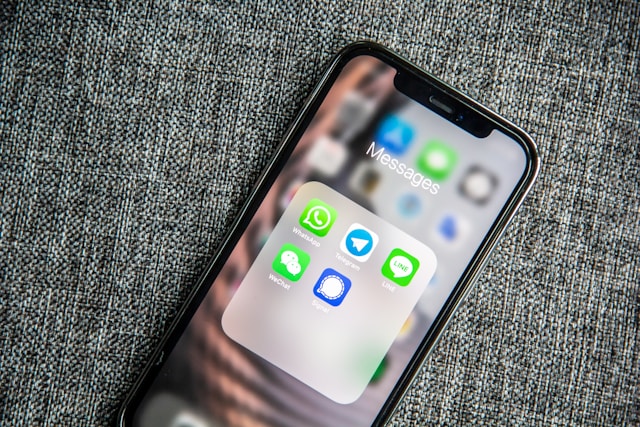Enhancing Customer Engagement with SMS Technology

Why SMS Still Matters
In the digital era, businesses have a wide range of tools for connecting with their audience—emails, social media, chatbots, and mobile apps. Yet, one channel consistently proves its worth: the simple text message. Unlike other platforms, text messages are delivered instantly, rarely ignored, and easily accessible across all age groups and regions. With open rates far exceeding those of email, SMS provides businesses with a direct and reliable way to capture attention, share updates, and build stronger customer relationships.
Why Businesses Should Leverage SMS
One of the greatest strengths of text messaging lies in its universality. Nearly every mobile phone in the world can receive a text, meaning businesses can reach customers regardless of the device they own or the apps they use. This accessibility makes it one of the most inclusive communication tools available today.
Beyond reach, SMS creates a sense of immediacy. When people hear a text notification, they are far more likely to open and act on it quickly compared to emails or app alerts. For businesses, this can translate into faster customer responses to promotions, service reminders, or urgent updates. It also fosters trust—when customers know they’ll receive timely and relevant communication, they are more likely to stay engaged with the brand.
Reducing No-Shows with SMS Reminders
Missed appointments, delayed deliveries, and forgotten reservations can create frustration for both businesses and customers. These inconveniences not only cost companies money but also erode customer trust over time. A simple SMS reminder sent at the right moment can dramatically reduce such problems.
Healthcare providers, for instance, often use reminders to ensure patients don’t forget their upcoming consultations. Restaurants can confirm table bookings, reducing the likelihood of empty seats. E-commerce platforms can notify buyers of expected delivery times, minimizing missed drop-offs. Each of these reminders shows customers that the business values their time and is committed to providing reliable service. Over time, these small gestures build loyalty and strengthen relationships.
Streamlining Communication with SMS API Integration
For small businesses with only a handful of customers, manually sending texts might work. But for medium and large organizations, automation is essential. This is where SMS API integration with customer management systems or booking platforms becomes a game changer.
Through automation, businesses can trigger text messages based on specific customer actions. For example, an automatic order confirmation can be sent the moment a customer makes a purchase. Real-time shipping updates can be tied to logistics systems, letting customers track deliveries without needing to log in. Even payment reminders can be automated, reducing the administrative burden on staff while ensuring timely communication with customers.
This seamless integration not only improves efficiency but also ensures personalization. Each message is tied directly to a customer’s action, making the interaction feel relevant rather than generic.
Best Practices for Effective Messaging
While the benefits of text communication are clear, businesses must approach this channel with care. Overuse or poorly timed messages can frustrate customers and damage trust. To maximize effectiveness, several best practices should be followed:
- Obtain consent: Customers should always opt-in before receiving texts. This ensures compliance with regulations and builds trust.
- Keep messages short and clear: Texts should get to the point quickly, avoiding unnecessary detail.
- Provide value: Every message should serve a purpose, whether it’s delivering information, offering a promotion, or providing support.
- Personalize whenever possible: Using a customer’s name or tailoring content to their past purchases makes the interaction feel more human.
- Respect timing: Avoid sending messages during early mornings or late nights, when customers are less receptive.
By applying these principles, businesses can ensure their communication feels helpful and professional rather than intrusive.
How SMS Strengthens Customer Relationships
The true power of text communication goes beyond convenience—it lies in its ability to foster trust and strengthen long-term relationships. Customers who consistently receive timely updates, useful reminders, and personalized offers are more likely to remain loyal to a brand. This engagement often leads to higher retention rates and increased lifetime value.
Moreover, SMS can complement other communication channels. A promotional campaign launched via email, for example, can be reinforced with a timely text reminder. Similarly, customer surveys sent by text often see higher response rates, giving businesses valuable feedback they might not gather through other means.
Conclusion: A Timeless Tool in a Modern World
In a world dominated by digital noise, the humble text message remains a powerful way for businesses to cut through the clutter and reach customers directly. Whether it’s reducing no-shows with reminders, streamlining operations with automation, or simply delivering important updates at the right time, SMS continues to prove its value.
By following best practices and integrating this tool thoughtfully into their overall communication strategy, businesses can not only boost efficiency but also strengthen customer loyalty. In the end, SMS is not just about sending messages—it’s about building trust, enhancing experiences, and creating lasting connections that benefit both customers and companies alike.
